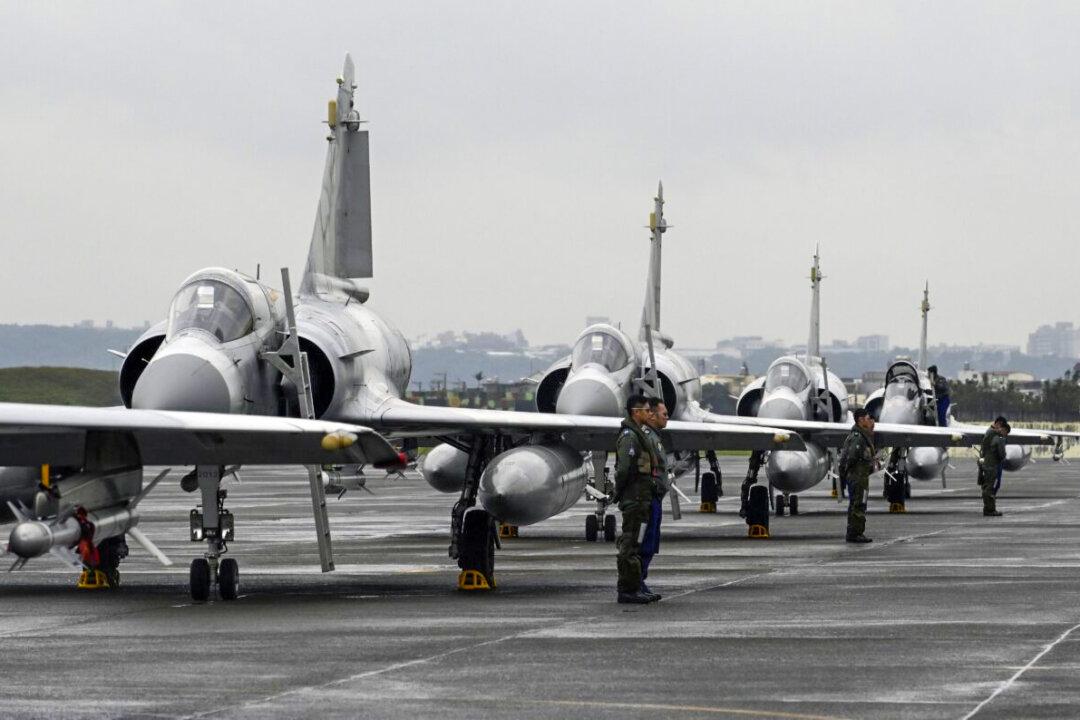Beijing sent 56 fighter jets into Taiwan’s air defense zone on Oct. 4 in its largest show of strength on record toward the self-ruled island that it claims as its own. The move also marked the fourth day of sustained military harassment against Taiwan that has seen nearly 150 warplanes fly into the zone.
The latest incursion included 34 J-16 fighters and 12 H-6 bombers, according to Taiwan’s Ministry of National Defense. An additional four Chinese J-16s appeared in the southwestern part of Taiwan’s “Air Defense Identification Zone”—the buffer area outside the island’s airspace.





